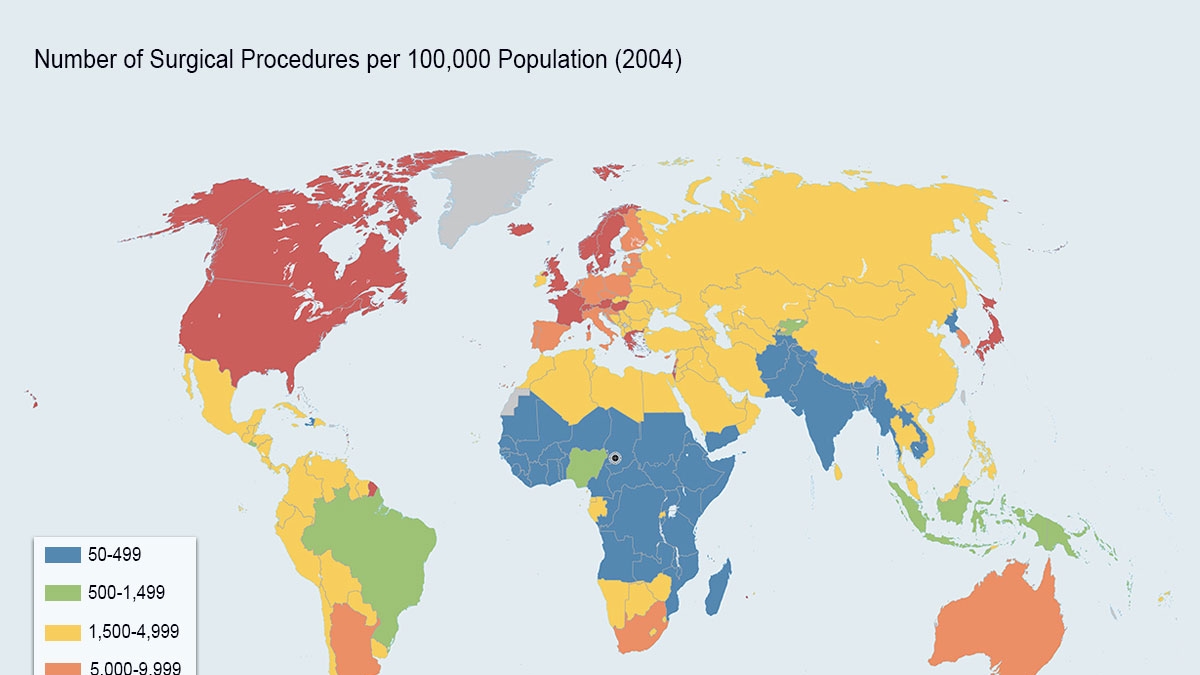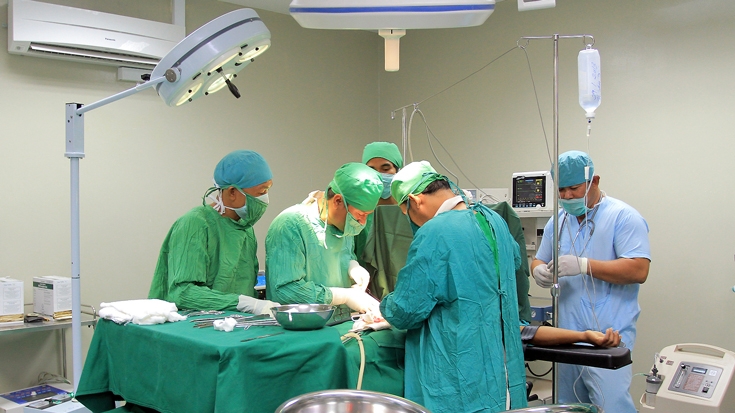Five million people died of injuries in 2012, and 270,000 women died of pregnancy complications. Many of these deaths could have been prevented if people had better access to surgical care, says a new book published by the World Bank Group.
Essential Surgery, launched at the Consortium of Universities for Global Health sixth annual conference in Boston, is the first of nine volumes of the third edition of Disease Control Priorities (DCP3), a comprehensive review and analysis of the most effective and cost-effective approaches to global health.
The book finds that basic surgical procedures are among the most cost-effective of all health interventions in developing countries. If they were more widely available, essential surgical procedures would prevent 1.5 million deaths a year.
About 2 billion people lack access to surgical services such as Caesarean sections or setting broken bones, even though many surgeries could be offered at district hospitals in developing countries.
Until relatively recently, surgery was considered too complicated and expensive to be an integral part of public health in developing countries. But opinions are changing as more evidence emerges of the value and cost-effectiveness of basic surgical procedures.
“You’ve got a broken arm or a ruptured appendix … everybody knows you need a surgeon. And it turns out that kind of surgery is not that hard, not that expensive, and it really makes a big, big difference,” said DCP3 and Essential Surgery editor Dean Jamison, senior fellow in Global Health Sciences at the University of California, San Francisco, and an emeritus professor of global health at the University of Washington. Jamison was also lead author of the original Disease Control Priorities in 1993, as well as of the 1993 World Development Report, Investing in Health.
Dr. Haile T. Debas, another Essential Surgery editor and a surgeon, said he has seen firsthand the “incredible lack of essential surgeries, particularly in rural districts” on his visits to his native Eritrea and elsewhere in Africa.
DCP3 and its predecessor, the 2006 edition of Disease Control Priorities, “have really helped put surgery on the global health map,” said Debas.
“I think many people are coming to appreciate that unless you can provide essential surgery services in low- and middle-income countries, it will be very hard to realize the lofty goals of the Lancet Commission on Global Health 2035. The need for surgical services is very big.”


